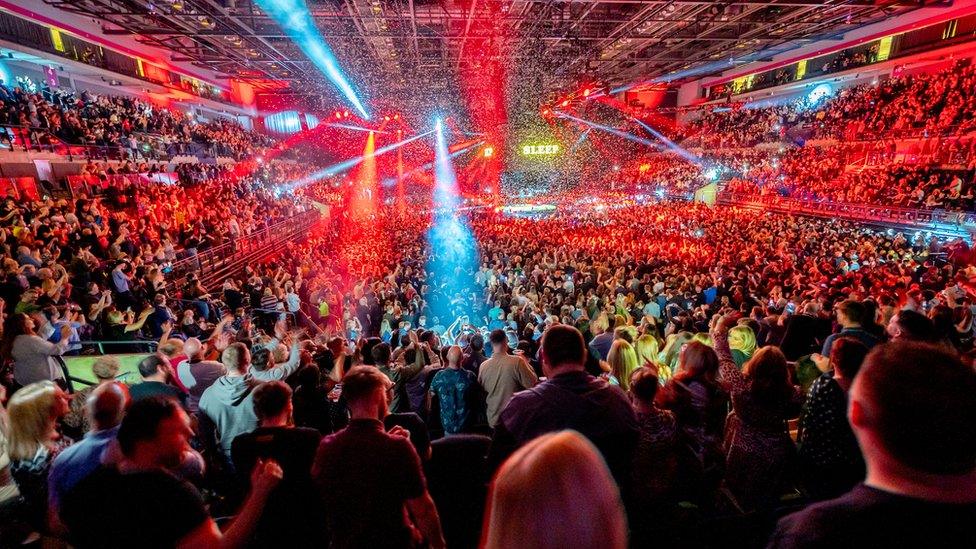Liverpool's Eurovision arena had 'unacceptable' crowd congestion at gig
- Published
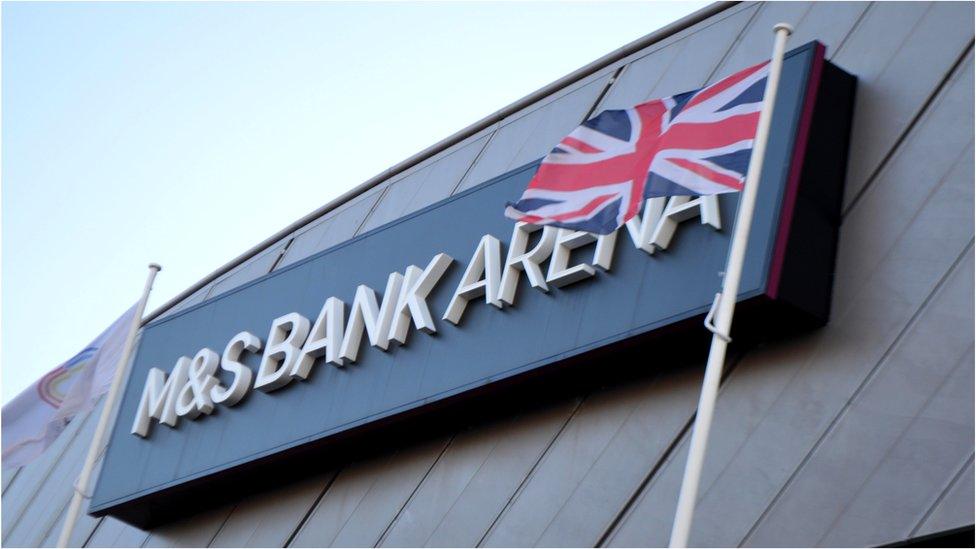
The M&S Bank Arena will host the Eurovision semi-finals and grand final in May
The Liverpool venue for this year's Eurovision Song Contest experienced "unacceptable" crowd congestion at a concert in November, its operators say.
Some fans at the sold-out Jamie Webster gig complained one area felt unsafe.
The M&S Bank Arena's investigation said crowds built up when a new bar payment system crashed, and long queues for two bars met toilet queues and people coming in through the main entrance.
The venue, which will host Eurovision in May, called it an isolated incident.
The arena will have a reduced capacity for the song contest because of the size of the set, with about 6,000 fans expected compared with the arena's usual capacity of 11,000.
Its operators ACC Liverpool said they "immediately revisited and revised our layouts and processes in relation to crowd flow" after the Jamie Webster show on 19 November and were "accelerating" plans for new bar and toilet facilities.
BBC News has obtained a draft internal report into the incident from ACC Liverpool following a Freedom of Information request.
After the concert, fans told the BBC the venue's entrance was so crowded that some ticket-holders were too scared to go in.
'You couldn't move'
Paul Lang, from Birkenhead, told BBC Radio Merseyside: "At least 15-20 people walked away and were just not dealing with it, and more people were coming out, getting a bit worked up, panicked about it, and just said, 'It's just not worth it for our own safety.'"
Another fan, Liam Kelly, said a steward initially stopped letting people in because it was "overcrowded" - before "she kind of left and then there was this chaos at the door where everyone just started to walk in".
The experience of getting in was "really horrible", Mr Kelly told the station. "It was the entrance way and the bar area that were absolute chaos. You couldn't move. It took ages to get through."
No injuries were reported and the show went ahead, although indie singer-songwriter Webster, who was playing his biggest home town gig, had to cut his encore because of the problems.
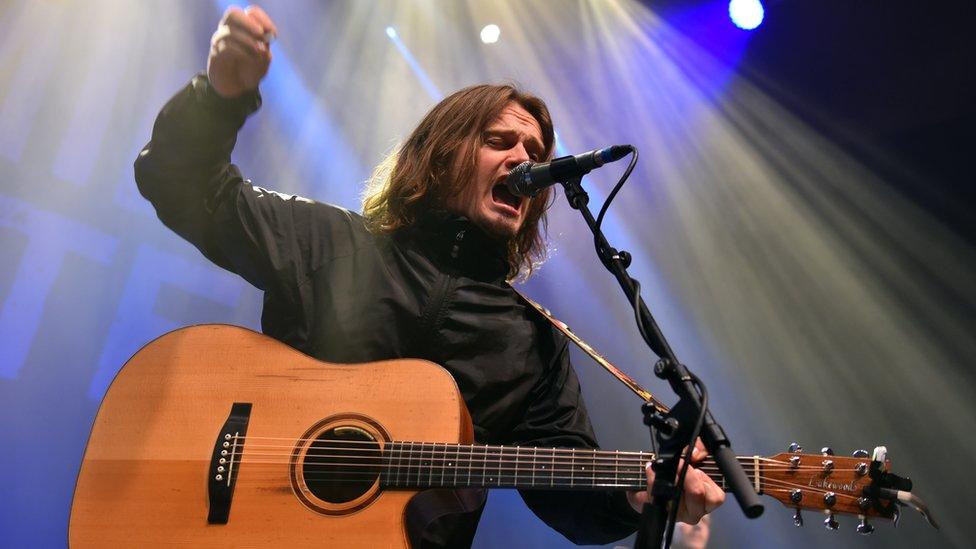
Jamie Webster was playing his biggest home town show
In December, he told the Have A Word podcast: "There was congestion at one of the bars. People had phoned up from inside the arena - phoned the police and said, 'It's not safe by this bar.'"
Police were called just before 21:30 and said they attended "briefly".
ACC Liverpool's draft report said there was "a period of congestion in one area of the Arena".
There was "a single point of intersection of three crowds" when "the crowds moving to the toilets crossed the queue for two floor bars and this crowd then built up with the ingress from the main Riverside entry door", it said.
"In addition, there was a problem with a new e-bar facility which, during the peak service period, had a technical fault and became inoperable. This resulted in a proportion of the queue for drinks being further delayed in being served which led to a further build-up of customers in the area and added to the congestion in the area.
"Whilst staff on duty managed to dissipate the congestion in this particular area of the venue, at the peak of the crowd build-up the congestion was an unacceptable."
Remedial actions were "instantaneous" in an attempt "to eliminate the likelihood of crowd build up around the bar and ingress intersections", it said.
There was also "a recurring issue" with tickets not scanning, it added.
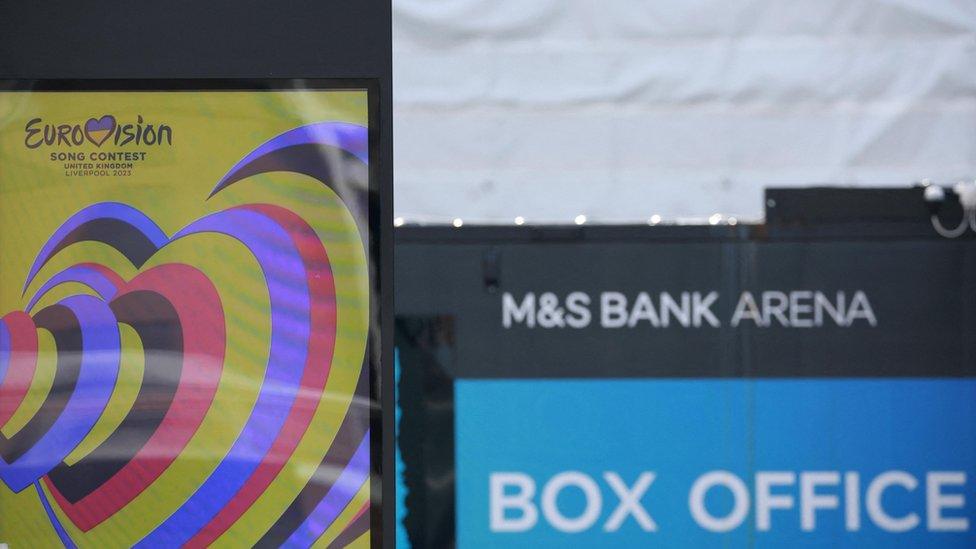
The arena will have a reduced capacity for Eurovision
In a statement, Faye Dyer, managing director of The ACC Liverpool Group, said: "This was an isolated incident with reports of overcrowding in one area by two of the floor bars. The crowd congestion was resolved, people were dispersed and the event was deemed safe to continue.
"We immediately launched an internal investigation which has been completed."
She added that customer safety was "our number one priority and we take any incident seriously".
"We immediately revisited and revised our layouts and processes in relation to crowd flow. We are also accelerating plans to create additional bar and toilet facilities on the arena floor to further enhance the customer experience."
The report comes as there is heightened awareness of safety at venues following the deaths of two people in a crush outside the entrance of Brixton Academy in south London in December.
Related topics
- Published22 November 2022

- Published12 May 2023

- Published28 March 2023
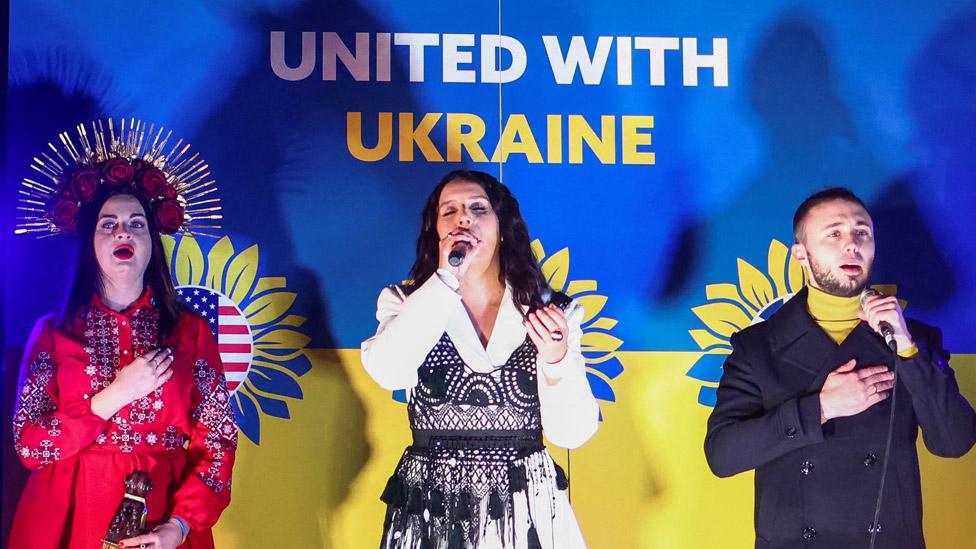
- Published8 March 2023
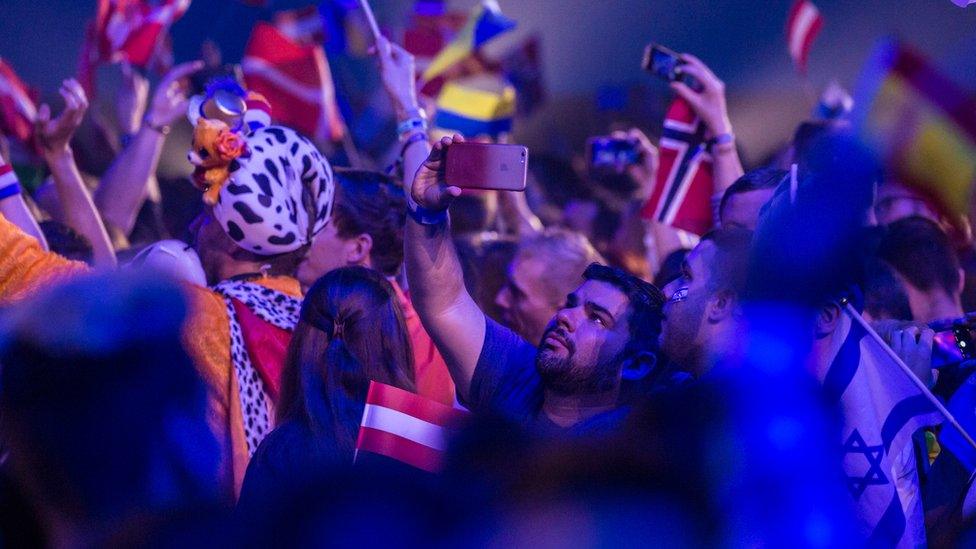
- Published7 March 2023
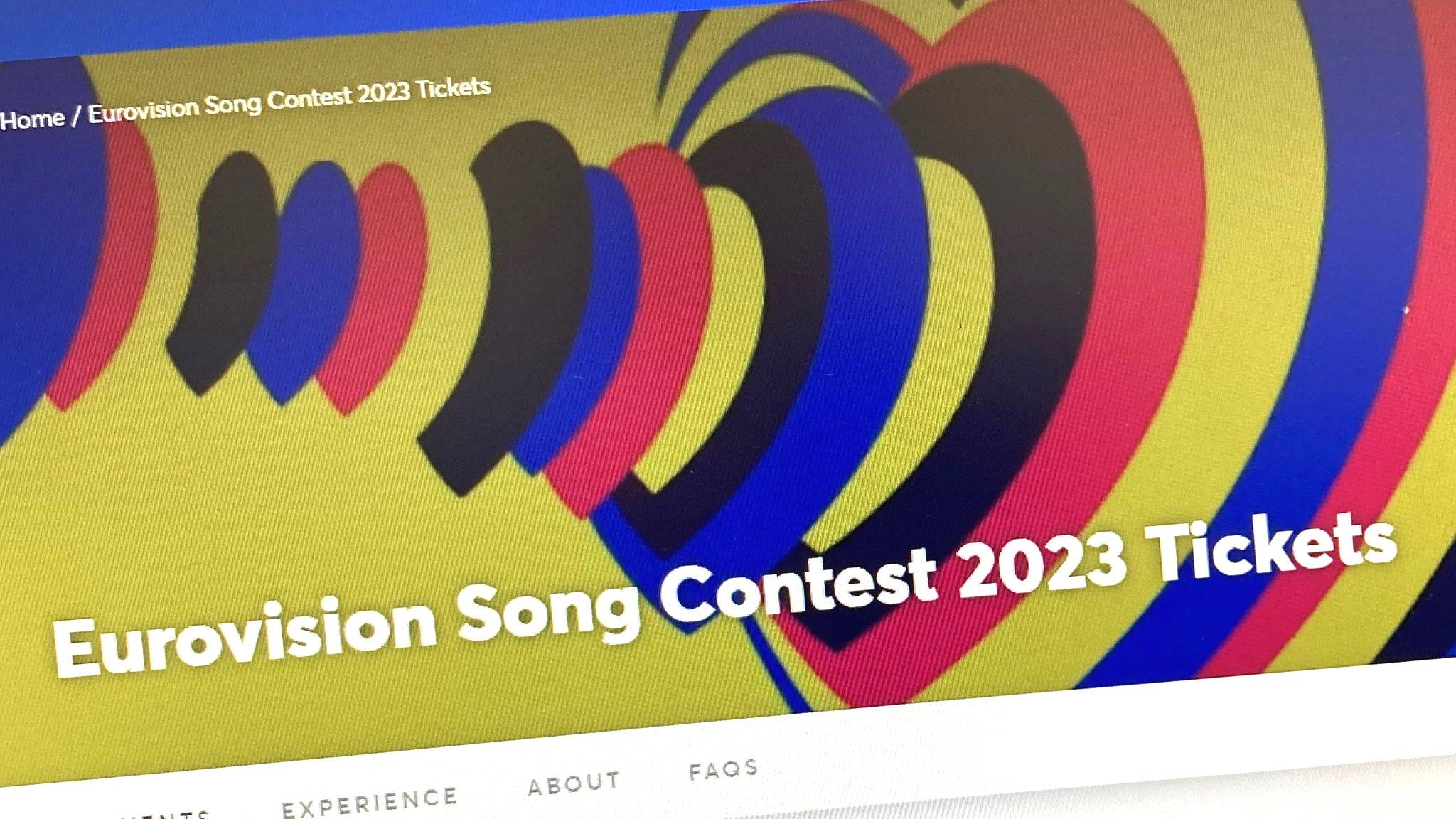
- Published7 February 2023
